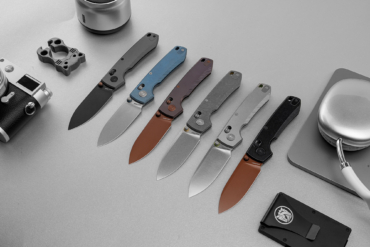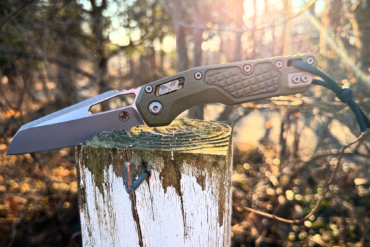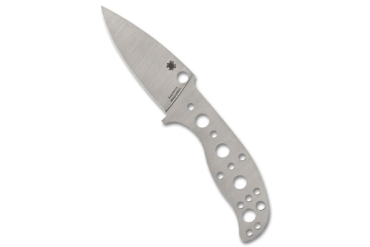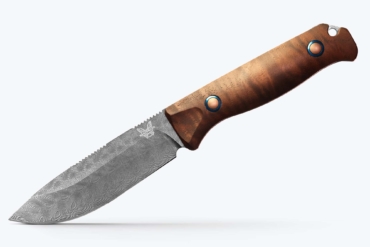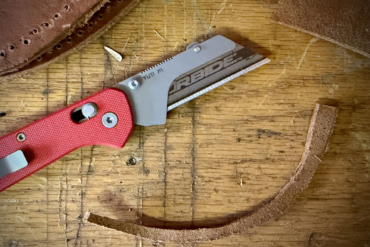This is a review of a truly absurd knife: a half-pound, 13-inch monster of proprietary steel that costs well over $500, has a waitlist of about 6 months (if they even make the model you want), and doesn’t come with a sheath.
Think of this knife article like you would an autos review of a Bugatti: a fanboy take on something ludicrously expensive, not really a harsh critique.
My Busse Forsaken Steel Heart (FSH), which I purchased after a more than 3-year wait for it to return to production, has every bell and whistle Busse offers.
It has the corrugated handle, the competition-grade finish, nuclear meltdown touches (eased, buffed, and polished surfaces), and the thinner, “whippier” nano fusion handle design that made its debut on this knife.
In total, the knife costs $597. I then paid another $80 for a custom sheath. That’s a lot for a chunk of steel. Is it worth it?
Let’s look at the specs:
Busse Forsaken Steel Heart Specs
- Blade length: 8”
- Blade height: 1.1875″
- Handle length: 5”
- Blade thickness: 0.25″ (1/4″)
- Overall length: 13″
- Weight (without sheath): 6.32 oz.
- Weight (with sheath): 9.4 oz.
- Blade steel: INFI
- Price: As configured $597, out of production; probably closer to $700 on the secondary market
- Made in the USA
Busses are known for bold, behemoth designs. And while the FSH is a huge blade, it’s actually modest in proportion to other Busses. And, like most Busses, it serves as a hatchet substitute.
Busse Forsaken Steel Heart Review

The big deal with Busse is the steel, which the brand designates as INFI. There’s no datasheet on this, and the knife world has long speculated about what it is.
Whatever the chemistry, INFI is the attention-grabber for Busse — and for good reason. I’ve used this steel next to some of the best in the world: 3V, Cru Forge V, A2, O1, 1095, 52100, Krein-treated D2. Not only does INFI do everything Busse claims, but it’s also my favorite fixed-blade steel available.
It’s tough, hard enough, and very stain-resistant (though Busse makes a point of saying it’s not truly stainless). The big advantage for me, however, is its sharpen-ability. The FSH never chipped, and getting its edge back to hair-popping sharp was easy.
With a bit of work, the FSH has one of the finest edges I have ever achieved on a fixed blade. Its only rival was another INFI-bladed Busse.
Amazing Handles
The steel may be why people love Busses, but the handles are equally amazing. With an extreme bird’s beak on the rear of the handle and pronounced (if not comical) contouring and Coke bottling — a handle’s tendency to swell in the middle and fill the palm — the FSH will let you do hard chopping for hours.
When two large trees fell in my yard, I put the FSH to work. After two full weekends of processing wood, I’m happy to report I was blister-free.

Drawbacks
The drawbacks of the FSH are obvious. It doesn’t come with a sheath (necessitating additional expenditure), it’s hard to get even if you have the money, and it’s huge.
But you know all this before buying a Busse. If you’re OK with waiting, saving your money, and buying an aftermarket sheath, you’ll be rewarded with the world’s preeminent big chopper, with best-in-class steel and handle design.
Going bigger with a Battle Mistress, for example, might make it impossible to engage in protracted blister-free chopping. And so the FSH seems like the right size if you want a huge fixed-blade knife.
Busse Forsaken Steel Heart: Conclusion
It’s definitely not for everyone. But like the few people who need a W16 engine, those that seek out a Busse know it’s not about need, but climbing the mountain of peak performance. The FSH is the best chopper I’ve ever used, warts and all.
Recommended (unless you aren’t afraid of the cost — then highly recommended).
Order Now at Busse Combat

